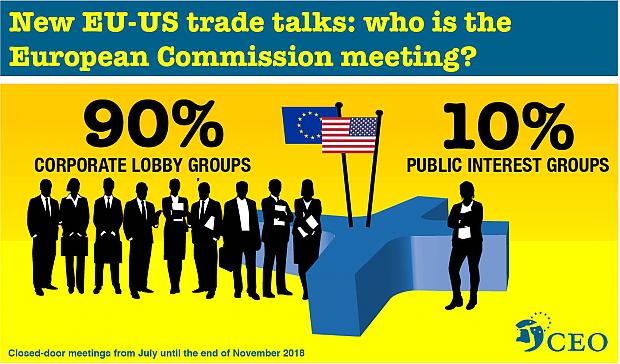Transparency alone hasn't ended influence of big capital
Transparency alone hasn't ended influence of big capital

Take recent international trade treaties. The CEO analysis shows that nine out of ten meetings with lobbyists were with those in the pay of the multinationals, while only one was with representatives of those, such as environmental groups, representing the public interest. No wonder then that the Commission still sees as holy writ treaties on trade and investment which principally serve the interests of multinationals.
The same image emerges from CEO research into the multinationals' influence on the notorious notification directive. I have often written about the directive in this weeklog. What it means is that local governments wishing to restrict the movement of services would first have to present their proposals to the European Commission. For three to six months after this presentation the authority involved would be unable to take any action until they received the green light from Brussels. We're not talking about small matters, either, as the regulation of Air BnB or the exclusion of already over-represented chain stores demonstrates. And of course the only people whose interests are served by this are big players such as IKEA who have no interest in local democracy. Here too the Commission wavered, but fortunately resistance grew by the day and the negotiations have for the time being been stopped in their tracks.
It's not only EU institutions which are caught in the multinational lobbyists' net. National governments and their representatives in Brussels also welcome the lobbyists with open arms, as yet another CEO report has shown.
Last week I held a meeting with representatives of both CEO and Transparency International. It ddn't take us long to agree that while we had over the last decade made a great deal of progress in regard to transparency, the task is far from completed. What we have to do now is ensure that the EU institutions are freed from this corporate capture. If necessary, more regulations will have to be introduced that in the future open the door further for representatives of the public interest, and close it more firmly to lobbyists from major corporations.
- See also:
- Dennis de Jong
